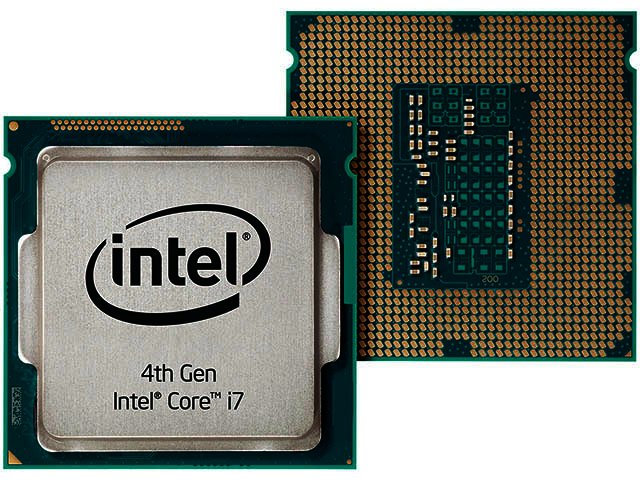Intel touts new hope for PC sector
By Ryan Noik 7 October 2013 | Categories: news
It’s no secret that the PC sector has had a rough ride of late, with news of plummeting shipments darkening its fortune this year. The good news is, that at least according to Intel, there may be new life and new hope for PCs and notebooks ahead.
At the rAge expo this past weekend, the company launched its newest 4th generation Intel Core processor family, Haswell, into the local market. According to the company, this will enable a new generation of ultrabook devices and 2-in-1 systems that deliver a PC and tablet experience in one device.
More specifically, Vince Resente, territory manager for South and Sub-Saharan African at Intel, said the new processor would allow notebooks and tablets to run all day on a single battery charge while delivering “leading edge graphics and performance”.
Can Haswell make all well?
He elaborated that the new processors deliver a 50% improvement in battery life, which translates to over 9 hours in some systems, and added that they also deliver “incredible visual experiences in even the thinnest of devices."
Furthermore, systems powered by the new Intel Core processors can wake up approximately eight times faster, handle everyday computing tasks roughly four times faster, and apparently make video editing and sharing about 16 times faster than a similar 4-year-old PC.
Intel, however, aren’t the only ones touting Haswell’s horn. Concurrently with Intel’s launch, Dell’s regional sales manager Gavin Slevin also pointed out that the new chip bodes well for high-performance gaming notebooks, particularly for users who rely on their machine for multiple purposes and need to squeeze more battery life out of it. Thus, on a 14” Alienware in this case, he noted that it was now possible to turn off the dedicated graphics card and other high-end specifications to extend battery life, while still receiving very good graphics performance.
Rise of the hybrids
According to Intel, the Haswell processor could have further reaching impact than merely extending battery life and computing speeds. It asserted that the new processor will see the rise of 2-in-1 devices, enabling users to switch effortlessly between keyboard and touch, notebook and tablet mode – to both create and consume content.
Resente pointed out that the hybrid devices offer all that users have come to expect from a tablet - a mobile device with low weight, thin design and long battery life, apps ecosystem, instant on and touch. Additionally, these machines also bring much of what users demand from a notebook: full PC performance and productivity, while supporting PC applications and key usages, and the choice to use touch, type, or mouse to interact.
To the point
“The lines of computing are blurring and converging. Consumers increasingly want their mobile devices to cope with heavier consumption tasks like fast and seamless video streaming. Now we’re seeing creation and productivity tasks - like sharing images over email on-the-go, reviewing work presentations and creating and editing videos - that have traditionally been associated with larger and more substantial computing devices are making their way into more mobile devices,” said Resente.
Interestingly enough, Intel’s message echoes that of Acer, which recently spoke along similar lines in Amsterdam, The Netherlands, even as they were setting their sights on the commercial sector. Add to this the fact that Windows 8.1 is imminent – with high hopes pinned on it to address the OS’ shortcomings. Could it be that the 2014 will witness the PC sector’s clouds of doom and gloom parting, to give way to a PC revival? Watch this space.
Most Read Articles

Have Your Say
What new tech or developments are you most anticipating this year?



